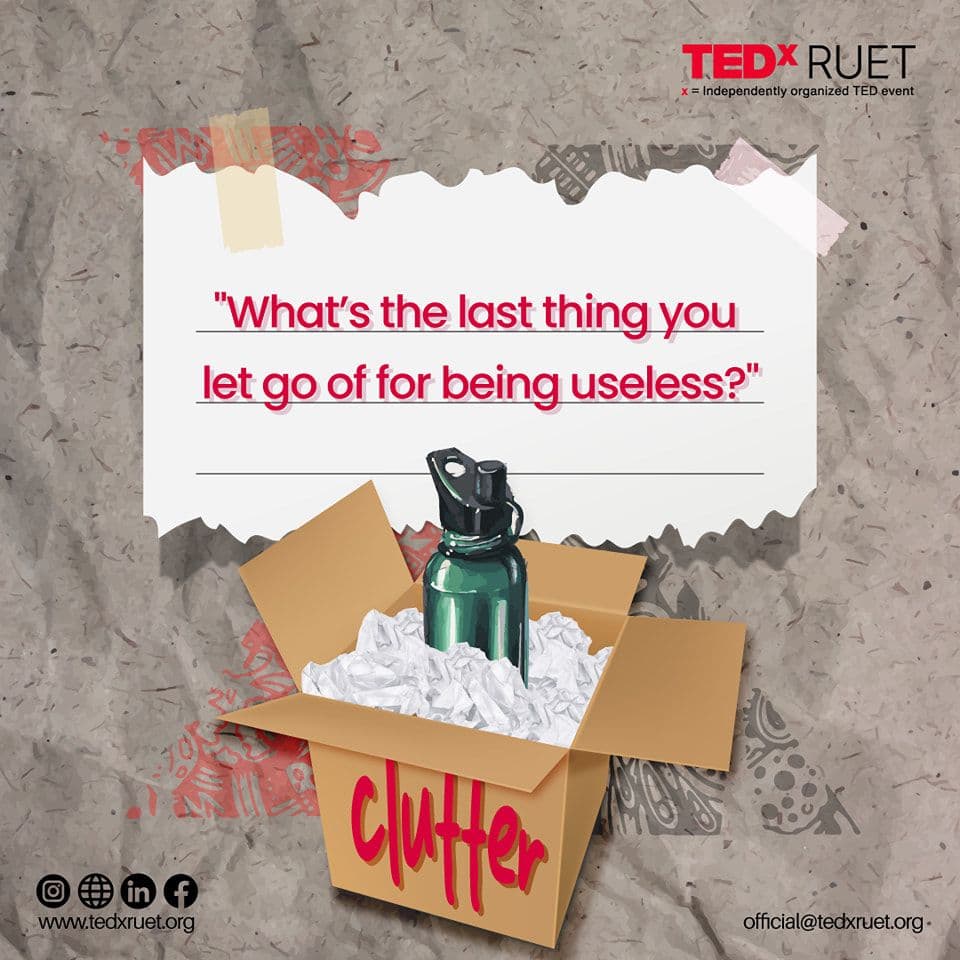What’s the last thing you let go of because it no longer served a purpose? Maybe it was a pair of jeans that haven’t fit in years or a book you’ve already absorbed. Did you part with it effortlessly, or was it a wrenching decision, tangled with nostalgia and attachment? As surprising as it may seem, we still haven’t shaken our primitive urge to hang on to things, just in case we might need them in some hypothetical future. Is it helpful? Hardly. Your space fills up, and chaos follows. So, how do we break this habit? The Minimalists, Joshua Fields Millburn and Ryan Nicodemus, show that letting go of excess leads to a more intentional, organized life. By simplifying our surroundings, we free up space for what really matters: joy, peace, and clarity.Our first instinct when facing the decision to part with something is often: What if I need it again? Let’s walk through two scenarios to make this clearer. First, you’ve just bought a new laptop, but you’re not quite sure what to do with the old one. Should you give it away? Sell it? What if you need it someday? Even though you’ve already transferred every file to the new machine, the uncertainty lingers. In another scene, your trusty water bottle, the one you’ve had since your first day of college, has finally worn out, and it leaks because the washer is missing. You bought a new one, yet you hesitate to toss the old one, clinging to the memories attached to it.If we break down these scenarios, the laptop you keep will eventually sit untouched, collecting dust in the closet. Alternatively, by giving it to someone in need, you’re not only freeing up space but also adding value to the device. That person can create something new from what you no longer use. Now the choice is yours: Do you want to let a drawer fill with a laptop, charger, and other forgotten items that will never see the light of day, or would you rather clear that space to better organize the things you actually use? That’s the practical side of the equation.Now, let’s look at the emotional side. You can’t bring yourself to part with your old water bottle because you’ve had it for so long, and it holds sentimental value. But ask yourself—do these inanimate objects actually hold the memories? Of course not. The memories are within you. Holding on to these items creates not just physical clutter, but emotional clutter as well.In today’s world, consumerism has made it increasingly difficult to live with just what we need—no more, no less. Online marketing and compulsive purchasing drive us to buy yet another frying pan, even if the last one remains unopened. This isn’t just a personal issue; it’s a symptom of a larger problem born from the capitalist economy. Mass production and relentless sales tactics not only harm the environment through overconsumption, but they also push people into debt, fostering an unhealthy habit of buying what we want instead of what we truly need.Mindfulness is a practice that can help you release attachments. The scenarios above reflect the everyday mental tug-of-war we often face and should be addressed thoughtfully. When you pause before buying that new hair dryer, recognizing that the old one still works perfectly fine, that’s mindfulness in action. A cupboard overflowing with choices won’t simplify your life—it will only waste your time and scatter your focus. Instead, take control today by letting go of one unnecessary possession each day, until your space feels clear and purposeful.

𝐓𝐡𝐞 𝐀𝐫𝐭 𝐨𝐟 𝐋𝐞𝐭𝐭𝐢𝐧𝐠 𝐆𝐨: 𝐓𝐡𝐞 𝐏𝐚𝐭𝐡 𝐭𝐨 𝐚 𝐓𝐢𝐝𝐲 𝐋𝐢𝐟𝐞
Posted on: Oct 08, 2024 04:04 PM (T+00:00)
Posted by: Shahariar Ahmed Ome
𝐖𝐡𝐚𝐭’𝐬 𝐭𝐡𝐞 𝐥𝐚𝐬𝐭 𝐭𝐡𝐢𝐧𝐠 𝐲𝐨𝐮 𝐥𝐞𝐭 𝐠𝐨 𝐨𝐟 𝐛𝐞𝐜𝐚𝐮𝐬𝐞 𝐢𝐭 𝐧𝐨 𝐥𝐨𝐧𝐠𝐞𝐫 𝐬𝐞𝐫𝐯𝐞𝐝 𝐚 𝐩𝐮𝐫𝐩𝐨𝐬𝐞?